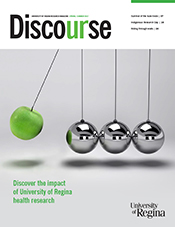By the book
1Will multiculturalism survive in an ideological environment that continues to veer to the right? Arjun Tremblay, from politics and international studies, delves into this question in his new book, Diversity in Decline? The Rise of the Political Right and the Fate of Multiculturalism (Palgrave Macmillan, 2019). The book brings to light the conditions under which multiculturalism is most likely to survive under right-wing governments and provides insight into the possible fate of other traditionally left-leaning political projects.

4 In Social Theory for Teacher Education Research: Beyond the Technical-Rational (Bloomsbury, 2019) co-editor Kathleen Nolan and the book’s contributors argue that research in teacher education must draw on social theories to help move beyond technical-rational concerns. This change in focus will build a critically reflexive stance for noticing and unpacking the socio-political contexts of schooling. Drawing from the theories of Barad, Bourdieu, Foucault, Heidegger, and others, the authors assert that innovative social theory-driven research can challenge and change teacher education practices and the learning experiences of students.

2 Official stories say that violence in Latin America is a product of criminal activity and the drug trade. In Organized Violence: Capitalist Warfare in Latin American (University of Regina Press, 2019), politics and international studies assistant professor Simon Granovsky-Larsen co-edits a collection that exposes how that narrative serves corporate and state interests and de-politicizes events that have more to do with logistics infrastructure, social control, and the extractive industries than with cocaine.

5 Ideas are developed not in the vacuum of a discipline or a nation-state, but through borders meeting and crossing. In The American Politics of French Theory: Derrida, Deleuze, Guattari, and Foucault in Translation (University of Toronto Press, 2018), English lecturer Jason Demers documents the cross-pollination of French philosophy, international activist movements, and American countercultures to demonstrate why, in an era of mass communication and global revolt, we need to think of translation as a web of associations.

3 Honouring the Strength of Indian Women (University of Manitoba Press, 2019), co-edited by Canada Research Chair Michelle Coupal, is a critical edition that brings to light largely unpublished works of Ktunaxa-Secwepemc writer and healer Vera Manuel, daughter of prominent Indigenous leaders Marceline Paul and George Manuel. Long before mainstream Canada understood and discussed the impacts and devastating legacies of Canada’s Indian residential schools, Vera Manuel wrote about them as part of her personal and community healing. She became a grassroots leader addressing the need to tell stories of survivors and advocate for the therapeutic value of writing and performing arts.

6 Growing forced migration and refugee resettlement make it all the more important to understand the teaching profession in a global context, especially for those who work with a diverse school population whose experiences of schooling are different than their own. In Beyond the Classroom Walls: Teaching in Challenging Social Contexts (Lexington Books, 2019), Jerome Cranston, education dean, uses data from three ethnographic studies to examine some of the world’s most challenging settings and illustrates the complexities that educators face in trying to meet the needs of their students.
















